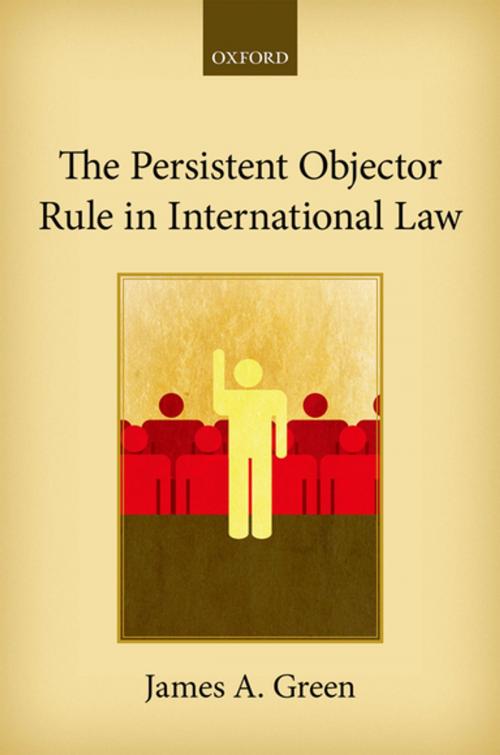The Persistent Objector Rule in International Law
Nonfiction, Reference & Language, Law, International, Social & Cultural Studies, Political Science| Author: | James A. Green | ISBN: | 9780191009570 |
| Publisher: | OUP Oxford | Publication: | March 3, 2016 |
| Imprint: | OUP Oxford | Language: | English |
| Author: | James A. Green |
| ISBN: | 9780191009570 |
| Publisher: | OUP Oxford |
| Publication: | March 3, 2016 |
| Imprint: | OUP Oxford |
| Language: | English |
The persistent objector rule is said to provide states with an 'escape hatch' from the otherwise universal binding force of customary international law. It provides that if a state persistently objects to a newly emerging norm of customary international law during the formation of that norm, then the objecting state is exempt from the norm once it crystallises into law. The conceptual role of the rule may be interpreted as straightforward: to preserve the fundamentalist positivist notion that any norm of international law can only bind a state that has consented to be bound by it. In reality, however, numerous unanswered questions exist about the way that it works in practice. Through focused analysis of state practice, this monograph provides a detailed understanding of how the rule emerged and operates, how it should be conceptualised, and what its implications are for the binding nature of customary international law. It argues that the persistent objector rule ultimately has an important role to play in the mixture of consent and consensus that underpins international law.
The persistent objector rule is said to provide states with an 'escape hatch' from the otherwise universal binding force of customary international law. It provides that if a state persistently objects to a newly emerging norm of customary international law during the formation of that norm, then the objecting state is exempt from the norm once it crystallises into law. The conceptual role of the rule may be interpreted as straightforward: to preserve the fundamentalist positivist notion that any norm of international law can only bind a state that has consented to be bound by it. In reality, however, numerous unanswered questions exist about the way that it works in practice. Through focused analysis of state practice, this monograph provides a detailed understanding of how the rule emerged and operates, how it should be conceptualised, and what its implications are for the binding nature of customary international law. It argues that the persistent objector rule ultimately has an important role to play in the mixture of consent and consensus that underpins international law.















